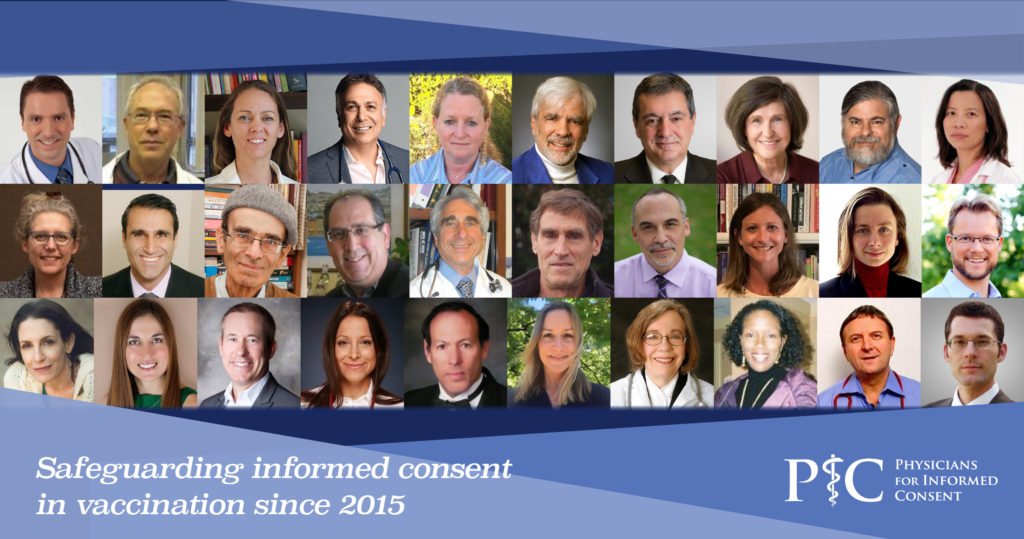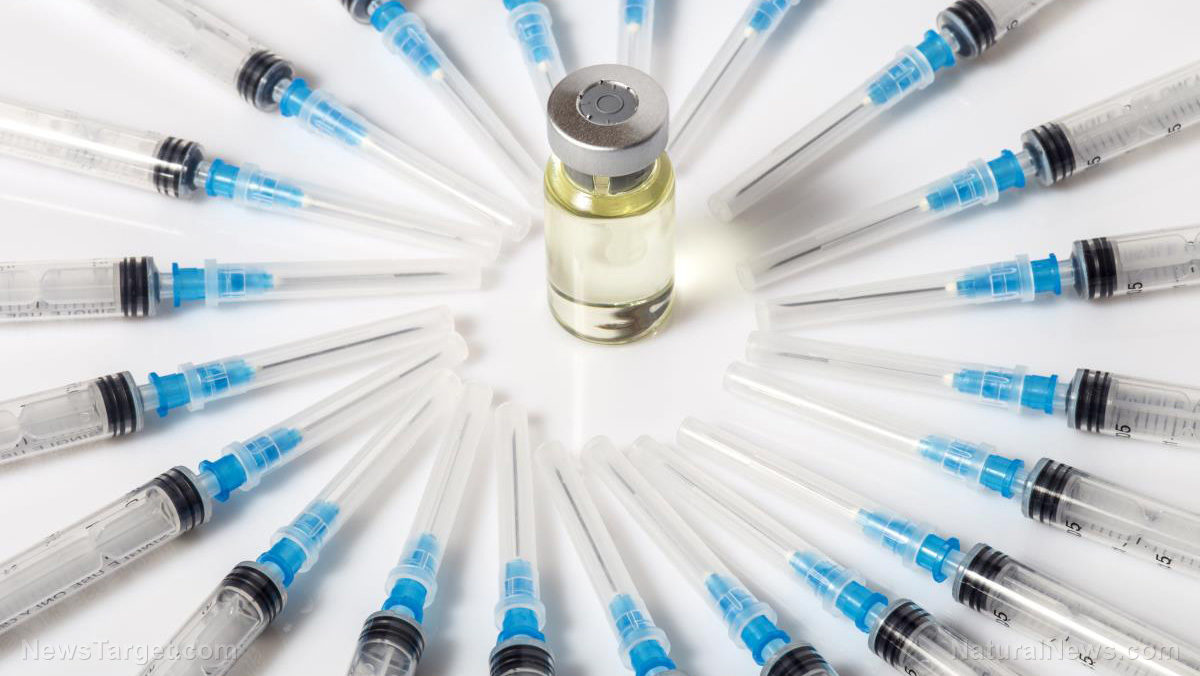ADVERSE REACTIONS UNDERREPORTED
The first two HPV vaccines to go to market were Merck’s Gardasil vaccine in 2006 and GlaxoSmithKline’s (GSK’s) Cervarix in 2009. (Both are still marketed in other countries but are no longer in use in the U.S., having been replaced by Merck’s Gardasil-9 vaccine in 2017.) HPV vaccines were problematic since their introduction, despite the statement on the CDC’s website that “HPV vaccination gives your child safe, effective, and long-lasting protection against HPV cancers.”2 Moreover, statistics show that Gaby is far from an anomaly: to date,
over fifty-eight thousand adverse reactions—including four hundred twenty-seven deaths—have been reported after HPV vaccine injections in the U.S. alone.3 What makes these numbers even more shocking is the U.S. Food and Drug Administration’s (FDA’s) estimate that less than 1 percent of all vaccine-related adverse reactions are ever reported.4
[...]
A 2016 study out of Canada highlighted the under-reporting of vaccine injuries. The study looked at over one hundred ninety-five thousand girls who had received HPV vaccines. Within forty-two days of HPV vaccination, the girls experienced over twenty thousand emergency room visits (n=19,351) or hospitalizations (n=958). However, only one hundred and ninety-eight adverse events were reported.7
HIDING AND DENYING THE DAMAGE
With statistics like these, one would think that the pharmaceutical companies that manufacture HPV vaccines and the authorities responsible for protecting public health by ensuring vaccine safety and efficacy would acknowledge that there is a problem, but instead of reevaluating HPV vaccines or pulling them off the market, these entities continually dismiss the onslaught of injuries as “coincidental” or “psychosomatic.”8 HPV-vaccine-associated injuries include (but are not limited to) muscle pain and weakness; encephalopathy (brain inflammation); rheumatoid arthritis; Guillain-Barré syndrome (GBS); multiple sclerosis; amyotrophic lateral sclerosis (ALS); lupus; POTS; chronic fatigue syndrome (CFS); primary ovarian failure (POV); strokes; seizures; facial paralysis; and sudden cardiac death.9 Tragically, many adolescents have been accused of “faking” their illnesses right up until their deaths.
Some efforts to minimize the evidence of serious adverse reactions to HPV vaccines may go so far as to constitute criminal activity. In 2016, Dr. Sin Hang Lee, a scientist and doctor, wrote an open letter of complaint to Dr. Margaret Chan, at the time the director-general of the World Health Organization (WHO). Dr. Lee’s letter alleged scientific misconduct and cover-up of HPV vaccine dangers by global health officials.10 The source of information for Dr. Lee’s letter was a trail of emails and other communications between global health officials obtained via an Official Information Act request in New Zealand. The communications provided evidence that the same officials who were busy reassuring the public that HPV vaccines were safe knew that Gardasil and Cervarix were more likely than other vaccines to cause a potentially dangerous inflammatory response.
Specifically, WHO officials knew that the vaccines trigger the release of cytokines or proteins called tumor necrosis factors (TNFs), which can cause cell death.11 The release of TNFs can also result in a wide range of reactions such as tumor regression, septic shock (a serious whole-body inflammatory response that can result in dangerously low blood pressure and death) and cachexia (a wasting syndrome where the person loses weight, becomes fatigued and experiences muscle atrophy).12
THE RUSH TO MARKET
Perhaps the grossest example of FDA misconduct of all time is the fact that Gardasil was fast-tracked.13 The time period from clinical trial to recommending the vaccine was only four years, even though most vaccines take an average of three years to develop and five to ten more for universal acceptance. Fast-tracking is a process meant to “facilitate the development of drugs which treat a serious or life-threatening condition.”14 It is a misuse of fast-tracking to apply it toward the licensure of a vaccine designed to eliminate a sexually transmitted virus with which the majority of sexually active men and women are infected at one point or another—
a virus that 90 percent of infected individuals clear naturally from the body within two years.15
CORPORATE TRACK RECORD
If you think Merck can be trusted with your daughter’s or son’s well-being, just look at its corporate history of engaging in criminal fraud with regard to other pharmaceutical products. For example, Merck made a “hit list” to “destroy,” “neutralize” and “discredit” doctors who criticized the company’s disastrous drug, Vioxx.18 Ultimately, Merck entered a guilty plea and agreed to pay a fine of nine hundred fifty million dollars.19 (This, of course, was not much of a fine considering that
Gardasil accounted for more than two billion dollars in revenues in 2016 alone.20) Former Merck scientists have accused Merck in federal court of vaccine research fraud regarding the efficacy of its measles, mumps and rubella (MMR) vaccine.21
When we interviewed Dr. Diane Harper, one of the world’s leading HPV experts and principal investigator for Merck’s Gardasil and GSK’s Cervarix clinical trials, she raised concerns about both vaccines and described Merck’s advertising campaign as “egregious and aggressive.” Dr. Russell Blaylock, a retired neurosurgeon and health freedom advocate, has gone so far as to say that Merck’s widely aired
One Less campaign was a “complete fraud.” Blaylock proclaimed, “It has never been shown that (Gardasil) prevents cervical cancer.”22 According to Harper, “The concept that our daughters are cancer deaths waiting to happen is just not accurate,” yet Merck has not been shy about insinuating just that.
Another fact important to understand, again explained by Harper, is that there are no data showing that HPV vaccines remain effective beyond five years, while a full fifteen years of immunity coverage are necessary to prevent cervical cancer. In Harper’s view, the moment Merck gained FDA approval for Gardasil, the company stopped studying the vaccine, performing no long-term safety monitoring.
[...]
Merck followed its initial
One Less campaign with its
I Chose advertising campaign in 2008, which featured a variety of young women explaining why they decided to get vaccinated, ending with one woman explaining that her dreams don’t include cervical cancer. Then, a decade after Gardasil’s introduction, Merck shifted from One Less and I Chose to attempts to shame parents into getting their children vaccinated, playing on parents’ basic instinct to protect their children. (One could easily label the 2016 campaign as the Who Knew? campaign, with both boys and girls asking their parents in the television commercials, “Did you know—Mom, Dad?”)
Up until that point, the vaccine had not been heavily promoted to boys and young men, despite FDA approval for males in 2009. All that changed in 2016 when Merck began targeting all eleven- to twelve-year-olds, female or male. Oddly, not until 2018 did a Merck advertisement even mention how one contracts HPV (through intimate sexual contact). The newest Versed ad campaign aims to educate youth by telling them to “get smart about HPV” and get “vocal.”
[...]
EXTENDING THE VACCINE’S REACH
Despite all of the problems with HPV vaccines, U.S. politicians are increasingly trying to mandate HPV vaccines for school admission. In 2007, Governor Rick Perry of Texas signed an executive order that required HPV vaccination for all eleven- to twelve-year-old schoolgirls. Why? The CDC says it’s important to vaccinate people before they become sexually active, but perhaps Perry’s order had more to do with the fact that his former chief of staff was the leading lobbyist for Merck.43 Fortunately, the Texas state legislature overturned Perry’s order. Even so, Perry launched an unfortunate trend.
Today, children in Rhode Island, Virginia and the District of Columbia must be vaccinated against HPV to go to school (unless they take a religious or philosophical exemption), and in California, minors do not need parental consent to get HPV vaccines. In its statement communicating concern about primary ovarian failure, ACPeds expressed opposition to HPV vaccine mandates, saying, “The College is opposed to any legislation which requires HPV vaccination for school attendance.”37
In fact, mandating any vaccine is unethical—whether for students, parent volunteers, health care workers or any other person—especially because vaccine manufacturers are virtually exempt from liability in the U.S. The National Childhood Vaccine Injury Act (NCVIA) of 1986 made it almost impossible to sue pharmaceutical companies or those who administer vaccines if a person becomes vaccine-injured. Instead, that person must appeal to the government-run National Vaccine Injury Compensation Program (NVICP), which has a terrible reputation for financially compensating those injured or killed by vaccines. That said,
the program has paid almost six million dollars to forty-nine Americans after the U.S. Court of Federal Claims found that Gardasil had injured the individuals.44
THE WORST VACCINE
I’ve been in the vaccine awareness community for some time now. I’ve made a movie about the vaccine controversy; I’ve worked hard to educate people on the risks involved with vaccines; and I’ve fought against several hundred bad pieces of vaccine legislation over the past three years. In my experience, the HPV vaccine is the worst vaccine on the market.
The truth is that HPV vaccines have injured and killed far more children than ever would have gone on to develop HPV-associated cancers without the vaccine.
[...]
When women face only a 0.6 percent risk of cervical cancer and men face a 0.2 percent risk of rare anal and penile cancers, it seems irrational to continue using a vaccine with so many complications, let alone mandate the vaccine or expand the age groups covered by HPV vaccine recommendations. These vaccines have been plagued by controversy since their inception, causing more injury than any other vaccine in history. Despite an undeniable litany of adverse effects that includes death, the vaccines continue to be administered to millions of people without their fully informed consent. In addition, the HPV vaccines may well be worthless for their stated purpose—their heavy marketing as “cancer prevention” proceeds despite the fact that no long-term studies have ever been done to prove their efficacy. Blaylock says—and I agree—that “the entire vaccine program is based upon nonsense, fear and concocted fairy tales.” No amount of Merck’s clever advertising will convince me otherwise. Only unbiased, credible science could change my mind, and so far, that kind of science has not been done.
OCTOBER 27, 2018 BY
KENDALL NELSON

 But considering side effects this vaccine should be avoided at all costs. Hopefully will never have to face this necessity.
But considering side effects this vaccine should be avoided at all costs. Hopefully will never have to face this necessity.





